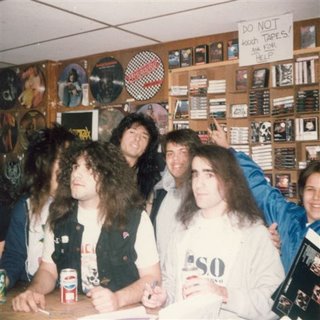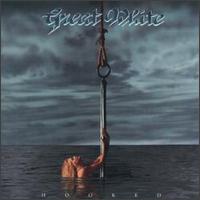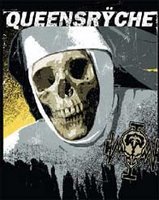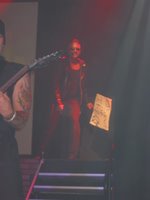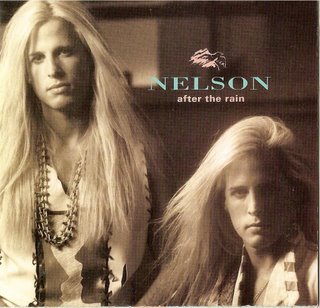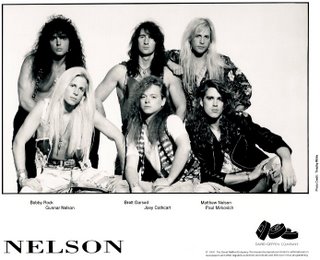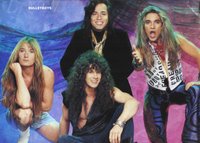(Editor's note: This is the second installment in a series about albums that don't quite qualify in the Lost Classics category, yet still warrant a closer look.)
Kik Tracee, No Rules (RCA, 1991)
The Big Idea: Dana Strum protégés deliver nuanced, ballad-heavy hair metal
Choice Cuts: "You're So Strange," "Big Western Sky," "Lost" and "Fade Dunaway"
Sonic Brethren: Slaughter, the Cult and Guns N' Roses
1991 will long be remembered by '80s metal aficionados as the year
Nirvana arrived to sound the death knell for hair metal bands. It also happens to be the year that Los Angeles quintet
Kik Tracee released its debut disc,
No Rules. At the time, Kik Tracee and
No Rules had a lot in their favor: big hooks, great songwriting, management courtesy of
Sharon Osbourne and a celebrity metal supporter in
Slaughter bassist
Dana Strum, who produced the disc.
The album's two singles -- the rambunctious, forced bravado of "No Rules" and the slower, dreamier "You're So Strange" -- are a study in contrast. It's as if frontman
Stephen Shareaux & Co. didn't know whether they wanted to rock or croon ballads. The latter tune manages a bit of both: it opens with a beautiful reverie of an arpeggio that dominates the tune's verses, while the chorus delivers a radio friendly hook that rocks within moderation. In a metamusical moment, Kik Tracee use the same arpeggio to end the album in "Fade Dunaway." The brief tribute to movie queen
Faye Dunaway leaves you with a tantalizing taste of golden Hollywood as its fades off into the sunset in just 41 seconds.
Some of the best material on
No Rules is the lighter, more balladic fare. While "You're So Strange" was the most commercial of the disc's dramatic ballads, "Big Western Sky" and "Lost" also benefit from slower tempos, acoustic fretsmanship and introspective lyrics.
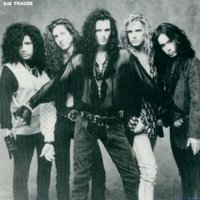
It's on the hard-edged material where Strum's production really takes the spotlight. The rocker-cum-producer sets the tone for Kik Tracee's unique take on
Simon & Garfunkel's "Mrs. Robinson" with nearly a minute of atmospheric air raid sirens ("War Pigs," anyone?) and machine gun fire sound effects as the tune builds up. Likewise, "Trash City" uses touches of helicopter and police siren sound effects to set a narrative mood. As a tale of urban decay, "Trash City" is a fitting companion piece to, say,
Guns N' Roses' "Welcome to the Jungle" or
Babylon A.D.'s "The Kid Goes Wild."
Much has been written comparing Kik Tracee to GN'R. I believe the comparison -- which probably stems largely from Shareaux's penchant for nasally vocals à la
Axl Rose -- isn't wholly accurate. In fact, the darker edge of the band is more in line with goth-inspired rockers the
Cult. Witness "Velvet Crush" as Shareaux does some distinctly
Ian Astbury-like wailing.
There's no debating that Kik Tracee wears its influences on the sleeve. After
No Rules, they completely revamped their sound for their final recording, the 1992
Field Trip EP. Would Shareaux & Co. have continued their sonic explorations and developed a sound all their own on subsequent releases? We will never know.
